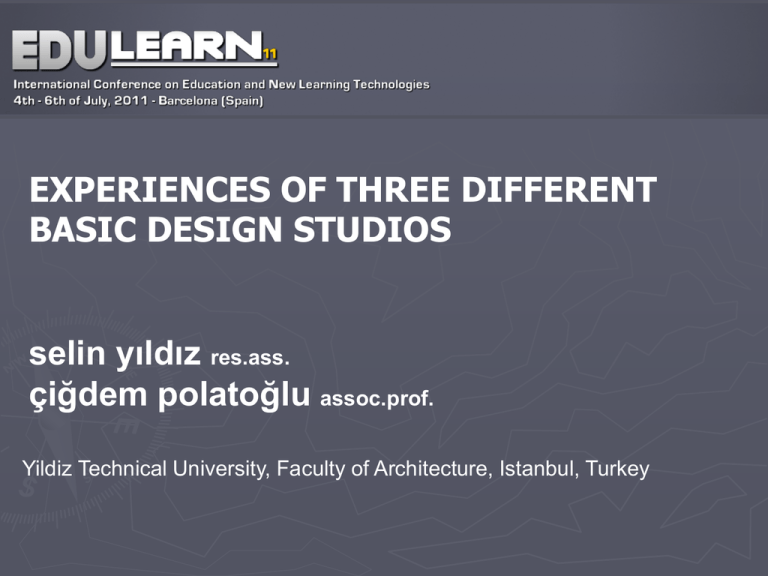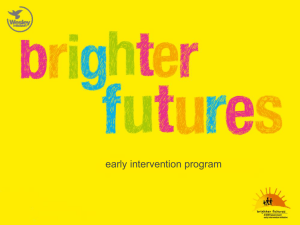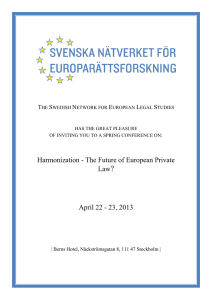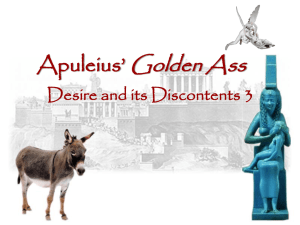EXPERIENCES OF THREE DIFFERENT BASIC DESIGN
advertisement

EXPERIENCES OF THREE DIFFERENT BASIC DESIGN STUDIOS selin yıldız res.ass. çiğdem polatoğlu assoc.prof. Yildiz Technical University, Faculty of Architecture, Istanbul, Turkey Basic Design Course Basic Design Course taking part in Architectural Education, emphasizes the awareness of the elements and principles in design as the first step by creating successful visual compositions. These fundamental concepts of Basic Design Course concerns form and space in order to gain a primary tool and systematic view for young designers 1 ----------------------------------------------------------------------------------------------------------------------------------------EXPERIENCES OF THREE DIFFERENT BASIC DESIGN STUDIOS selin yıldız res.ass. çiğdem polatoğlu assoc.prof. Aim to bring out the motivating teaching methods by superposing the programme of three different Basic Design Courses which were assisted in Yıldız Technical University between the years of 2005-2011. 2 ----------------------------------------------------------------------------------------------------------------------------------------EXPERIENCES OF THREE DIFFERENT BASIC DESIGN STUDIOS selin yıldız res.ass. çiğdem polatoğlu assoc.prof. Method The methods used in Basic Design Course’s practices are analysed in 2 parts to show the effects of motivation and creativity on pedagogy: Part 1: discusses the course flow by juxtoposing 3 programme to understand what is done for motivation and creativity. Part 2: brings out the highlighted successful practices by observing the students’ works. 3 ----------------------------------------------------------------------------------------------------------------------------------------EXPERIENCES OF THREE DIFFERENT BASIC DESIGN STUDIOS selin yıldız res.ass. çiğdem polatoğlu assoc.prof. Modules of the Basic Design Course Module 1: DESIGN ELEMENTS (Point, Line, Plane, Shape, Form, Color, Light –Shadow, Texture, Proportion and Scale, Interval) Basic design elements used in design are conveyed. Module 2: DESIGN PRINCIPLES (Repetition, Rhythm, Harmony- Contrast, Gradation, Dominance, Balance, Unity) Module3: PERCEPTION- The Principles of Visual Perception “Figure-ground” relations / Form Organization Module 4: SPACE CONCEPT (Space components and element, Cube design, Individual space design, experimental space) 4 ----------------------------------------------------------------------------------------------------------------------------------------EXPERIENCES OF THREE DIFFERENT BASIC DESIGN STUDIOS selin yıldız res.ass. çiğdem polatoğlu assoc.prof. PEDAGOGY : FLOW IN 3 GROUPS OF BASIC DESIGN COURSE Group 1 Lecture and Presentations Group 2 Group 3 Giving the issue* Presentation of posters, assignments, comments Lecture (instructor), slides board using Giving the issue* Presentation of research posters, comments Lecture (instructor) with visual documents (slides, video, etc) board using students are in charge Giving the issue* Lecture (instructor) board using Practice Defining the problem, -dimension of workspace is generally limited (to see different solutions) -dimension of product is generally limited (to see different solutions) -type of material is free Limited time Defining the problem, -dimension of workspace is limited -dimension of product is limited -type of material is decided Limited time- free time, changable Defining the problem -dimension of workspace is limited -dimension of product is limited -type of material is decided Limited time, NO QUESTIONS grading the assignments (simultaneous) Evaluation grades (students can see the scores) *Successful works are choosen for the semester exhibition grades (students aren’t allowed to see the scores) *Successful works are choosen for the semester exhibition *critics of each study in studio grades (students can see the scores) 5 ---------------------------------------------------------------------------------------------------------------------------------------EXPERIENCES OF THREE DIFFERENT BASIC DESIGN STUDIOS selin yıldız res.ass. çiğdem polatoğlu assoc.prof. * Students can fallow the course by the syllabus given at first lesson. Tabulating the course flow on 3 groups, Group 3 shows; instructor dominant programme, systematic flow and motivation by the scores. Number 1 and 2 shows mutual relationship between the teacher and the students. 6 ----------------------------------------------------------------------------------------------------------------------------------------EXPERIENCES OF THREE DIFFERENT BASIC DESIGN STUDIOS selin yıldız res.ass. çiğdem polatoğlu assoc.prof. Methods for MOTIVATION •warm-up tours •participated lectures •enhancing the relationship •self grading evaluation (SELF CONFIDENCE) •exhibition at the end of the term Method for CREATIVITY •time flexibility (limited-free) •using different methods •solution focused rather than problem (PROBLEM SOLVING) •design thinking (ABSTRACTION, CONCEPTUALIZING, TURNING ABSTRACT INTO CONCRETE) 7 ----------------------------------------------------------------------------------------------------------------------------------------EXPERIENCES OF THREE DIFFERENT BASIC DESIGN STUDIOS selin yıldız res.ass. çiğdem polatoğlu assoc.prof. OUTSTANDING PRACTICES / PRODUCTS OF THE COURSE Group 1 Module 1: DESIGN ELEMENTS (Point, Line, Plane, Shape, Form, Color, Light – Shadow, Texture, Proportion and Scale, Interval) Color-Texture practices on the surface of the shaped cube. - Using different materials enjoying for students. is -Design an arrangement which has a huge light and shadow effect with different sizes of triangular prism and pyramids. Students can see the results of the light and shadow by experimenting. 8 ----------------------------------------------------------------------------------------------------------------------------------------EXPERIENCES OF THREE DIFFERENT BASIC DESIGN STUDIOS selin yıldız res.ass. çiğdem polatoğlu assoc.prof. Group 2 Module 1: DESIGN ELEMENTS (Point, Line, Plane, Shape, Form, Color, Light – Shadow, Texture, Proportion and Scale, Interval) -Defining a music performance with lines. -Defining the weekdays with lines. Revealing the feelings makes the practice interesting. -Plane (20x20 cardboard 2mm) Turn your plane ito a volume by repeating. Repeating a form makes the product efective because it gives volume to the designed form. - Transform the basic forms into others that can be used in architecture via addition and deduction. (cube, sphere, cylinder, squarebased pyramid will be converted to 4 times) Thinking by drawing makes the design process faster and also helps students to overcome fear of finding right design solution. 9 ----------------------------------------------------------------------------------------------------------------------------------------EXPERIENCES OF THREE DIFFERENT BASIC DESIGN STUDIOS selin yıldız res.ass. çiğdem polatoğlu assoc.prof. Group 3 Module 1: DESIGN ELEMENTS (Point, Line, Plane, Shape, Form, Color, Light –Shadow, Texture, Proportion and Scale, Interval) -Designing a park corner STRAIGHT-CURVED BROKEN SURFACES will be arranged in the area of 25x25 cm workspace Students try to transfer their experiences of a park space by doing physical model. 10 ----------------------------------------------------------------------------------------------------------------------------------------EXPERIENCES OF THREE DIFFERENT BASIC DESIGN STUDIOS selin yıldız res.ass. çiğdem polatoğlu assoc.prof. Group 2 Module 2: DESIGN PRINCIPLES (Repetition, Rhythm, Hormony, Contrast, Gradation, Dominance, Balance, Unity) -CoverDesign competition of the Yearbook. Competing and expectation of award makes the practice more exciting. 11 ----------------------------------------------------------------------------------------------------------------------------------------EXPERIENCES OF THREE DIFFERENT BASIC DESIGN STUDIOS selin yıldız res.ass. çiğdem polatoğlu assoc.prof. Group 3 Module 2: DESIGN PRINCIPLES (Repetition, Rhythm, Hormony, Contrast, Gradation, Dominance, Balance, Unity) -make a creative open space with a “rectangle” form with given measurement (plan + perspective) -make a creative open space with a “triangle” form with given measurement (plan + perspective) -make a creative open space with a “square” form with given measurement (plan + perspective) Supporting a physical model with 2 dimension presentation helps students to make purposeful designs. Thinking in 3 stages to produce a model systematize the design process. 12 ----------------------------------------------------------------------------------------------------------------------------------------EXPERIENCES OF THREE DIFFERENT BASIC DESIGN STUDIOS selin yıldız res.ass. çiğdem polatoğlu assoc.prof. Group 1 Module 3: PERCEPTIONThe Principles That Help Determine the Definition in Visual Perception“Figureground” issues / Form Organization -Transfering a figure ground arrangement into 3 dimensional form Ground design behaves as the initiator for the practice 13 ----------------------------------------------------------------------------------------------------------------------------------------EXPERIENCES OF THREE DIFFERENT BASIC DESIGN STUDIOS selin yıldız res.ass. çiğdem polatoğlu assoc.prof. Group 2 Module 3: PERCEPTIONThe Principles That Help Determine the Definition in Visual Perception“Fi gure-ground” issues / Form Organization -Abstraction of a leaf Students try to recognise the natural environment, a kind of observation experiment. 14 ----------------------------------------------------------------------------------------------------------------------------------------EXPERIENCES OF THREE DIFFERENT BASIC DESIGN STUDIOS selin yıldız res.ass. çiğdem polatoğlu assoc.prof. Group 1 Module 4: SPACE CONCEPT (Cube design, Individual space design, Space components and elements) -Experimental space (individual space flexible, portable) design. design Enhances cretiveness, concrete the priciples by making the physical model of the space. 15 ----------------------------------------------------------------------------------------------------------------------------------------EXPERIENCES OF THREE DIFFERENT BASIC DESIGN STUDIOS selin yıldız res.ass. çiğdem polatoğlu assoc.prof. Group 2 Module 4: SPACE CONCEPT (Cube design, Individual space design, Space components and elements) - CUBE; arranging 2 and 3 dimensional forms in at 9x9x9 meters cube. All the elements and principles should be interpreted. All the design knowledge conveyed is used in this practice. Students gain the ability to critisize a design systematically. -Entrance-Transition-arriving Space (Design should be composed of 3 cubes which symbolizes all the basic design elements and principles) Students gain the ability to analyse an architectural project by this practice. 16 ----------------------------------------------------------------------------------------------------------------------------------------EXPERIENCES OF THREE DIFFERENT BASIC DESIGN STUDIOS selin yıldız res.ass. çiğdem polatoğlu assoc.prof. Group 3 Module 4: SPACE CONCEPT (Cube design, Individual space design, Space components and elements) -CUBE ; connecting 2 and 3 dimensional forms each other, which are placed on different altitudes and at different locations in your workspace limited 25x25x25 cm cube by using all basic design elements.creating “purposeful gaps”. All the design knowledge conveyed is used in this practice. Students gain the ability to critisize a design systematically. 17 ----------------------------------------------------------------------------------------------------------------------------------------EXPERIENCES OF THREE DIFFERENT BASIC DESIGN STUDIOS selin yıldız res.ass. çiğdem polatoğlu assoc.prof. CONCLUSION As a result , Basic Design Course forming the base of architectural design, emphasizes student focused, mutual relationship methods. This kind of pedagogical approach enhance improving self confidence, learning by doing, time using, criticizing, gaining different views and design thinking and encouraged motivation, creativity of the students. 18 ----------------------------------------------------------------------------------------------------------------------------------------EXPERIENCES OF THREE DIFFERENT BASIC DESIGN STUDIOS selin yıldız res.ass. çiğdem polatoğlu assoc.prof. REFERENCES *Çınar, K., Temel Tasar – Basic Design, 1999, Selçuk Üniversitesi Mühendislik Mimarlık Fakültesi Yayını, Konya *Ching, F., Architecture, Form-Space-Order, 1979, Van Nostrand Reinhold, New York. *Erdoğan, S., Mimari Tasarım Stüdyoları , Mimari Tasarım 1Architectural Design Studios, Architectural Design 1, Stüdyo 1999Journal of design, theory, and criticism, issue 1, İTÜ. *Mimari Tasarım Eğitimi 09’ “Bütünleşme” Sempozyum Kitabı – The Proceedings Book of Education of Architectural Design 09’ “ Integration”, 2009, YTÜ Basım Yayın Merkezi , İstanbul. *Mimarlık Eğitiminde Tasarım Stüdyolarına Farklı Yaklaşımlar – Different Approaches to Design Studios in Architectural Education , Mimarlar Odası İzmir Şubesi Yayınları, Aralık 2003, İzmir. 19 ----------------------------------------------------------------------------------------------------------------------------------------EXPERIENCES OF THREE DIFFERENT BASIC DESIGN STUDIOS selin yıldız res.ass. çiğdem polatoğlu assoc.prof.





![[Lecture 19] studio system 2 for wiki](http://s2.studylib.net/store/data/005217793_1-c296c1b3b7b87d52a223478e417a702f-300x300.png)


